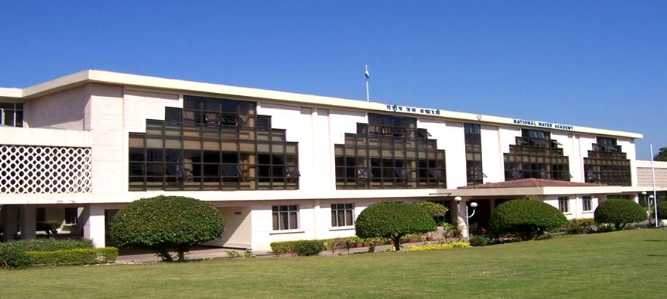Section outline
-
-
-
In preparation for this course, we ask you to provide some basic information about yourself in your profile and to set up a MetEd account on http://www.meted.ucar.edu. You can also view the course overview video to get more information about the course activities and modules. For participants that have not taken the Basic Hydrologic Science Course, please take the two prerequisite modules given below.
-
The first week begins with a live orientation session. If you haven't registered for it yet, please do so here. and subsequently presents a two required modules and associated quizzes offering an introduction to the science explaining catastrophic dam failure and flood-wave prediction methods associated with these events.
If you have any questions or need assistance, please post your inquiries to the Course Forum. We are standing by to address any questions you may have with the content presented in the modules or about the assignment.
By the end of this week, participants are expected to have completed all of this week's modules and associated quizzes. For questions about the content in the modules, please post to the Course Forum.
-
This week is devoted to three required modules on Hydrologic modeling.
By the end of this week, in addition to the required modules and quizzes, please make a post to the course forum that includes the title of your final assignment along with a description (2-3 sentence-long) of what you will discuss. In order to guide you about the nature of submission, four options are available. For detail, please see 'Final Writing Assignment Description'.
-
This week, you are required to complete three online modules and associated quizzes. The first two modules present an introduction to polar-orbiting-satellite-based microwave remote sensing products that depict moisture and precipitation in the atmosphere and on land. The third module describes the terminology, global evidence, regional manifestations, and basic science of global climate variability and anthropogenic change, with a focus on water resources management.
-
In week five, you are required to complete the first 2 modules listed below. From the remaining four modules, you must complete at least one as per your interests.
This is also the week when you will need to begin preparations for your final writing assignment, which is due on 1100 hrs IST on Tuesday, 1 May.
-
Chapter 2 covers a range of topics in remotes sensing in the tropics. Our focus is on sections 2.0-2.3 of the chapter. You are welcome to complete the entire chapter, but the quiz will focus on the selected sections.
-
The quiz for this material is hosted in the course site, not on MetEd.
-
Chapter 3 covers a comprehensive overview of global circulations. Our focus is on sections 3.4-3.7 of the chapter. Topics include circulation and the response to equatorial heating, monsoons, tropical circulations and precipitation distribution, and the role of the tropics in the general global circulation. You are welcome to complete the entire chapter, but the quiz will focus on the selected sections.
-
The quiz for this material is hosted in the course site, not on MetEd.
-
Chapter 4 presents an overview of major cyclical patterns that dominate tropical intraseasonal and interannual variability, including the impact on higher latitudes. Our focus is on sections 4.0: Overview; 4.1: Sources of Intraseasonal Variability; and 4.2: Sources of Interannual Variability. You are welcome to complete the entire chapter, but the quiz will focus on the selected sections.
-
The quiz for this material is hosted in the course site, not on MetEd.
-
The entire chapter 5 is of interest. It provides an overview of how thermodynamic energy is used to distinguish between fair weather, stormy weather, and the effect of dry intrusions, such as the Saharan Air Layer. Explore tropical cloud formation and distribution; precipitation processes and classifications; the lifecycle of tropical squall lines, annual, seasonal, diurnal, and interannual cycles of tropical precipitation.
-
This week, you will complete any modules you still need to finish. You can also take optional modules of your interest. You should also start working on your final writing assignment which is due for submission by 1100 hrs on Tuesday 1 May.
Please make a post to the course forum ( if not already done ) that includes the title of your final assignment along with a description (2-3 sentence-long) of what you will discuss from the four options available.
